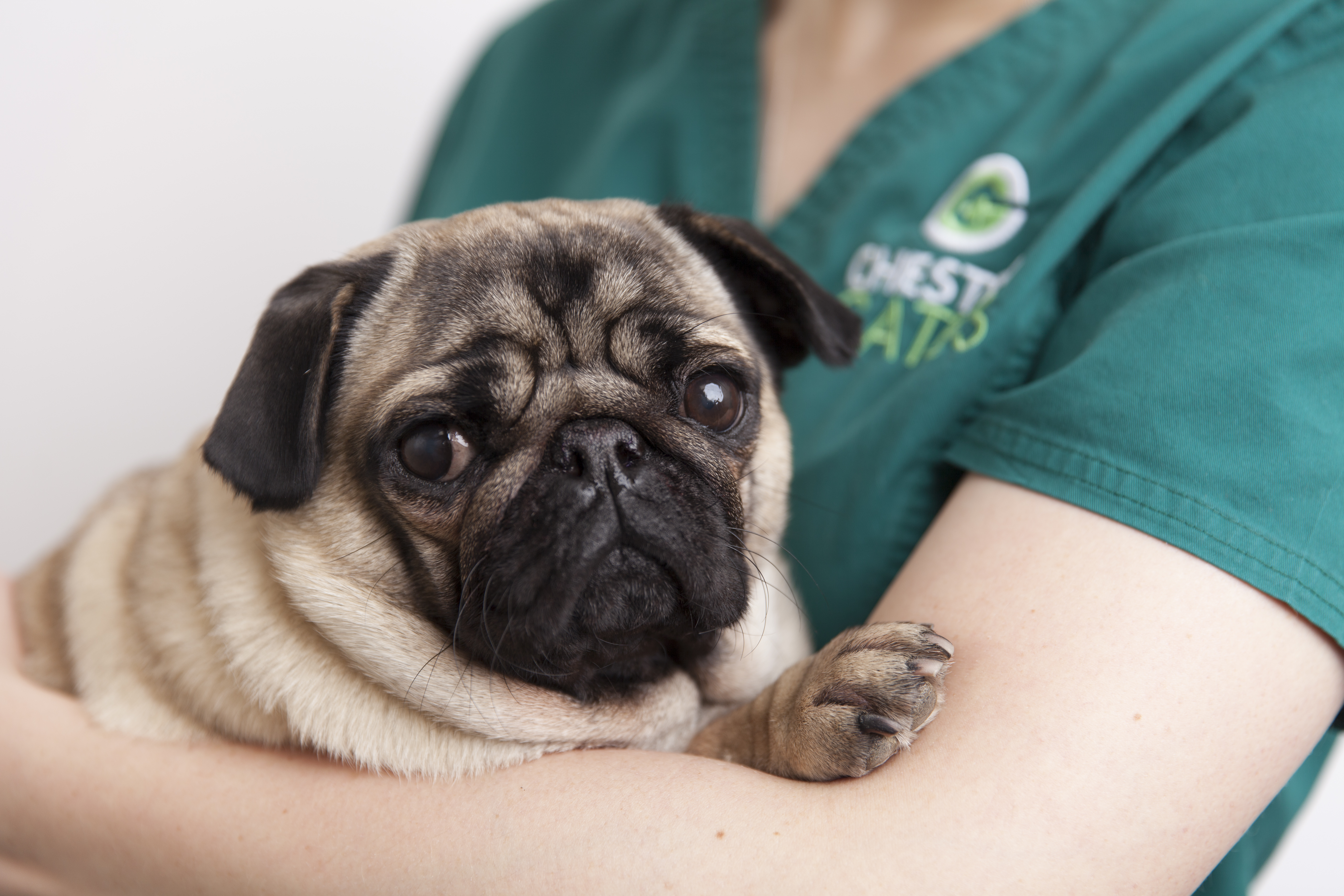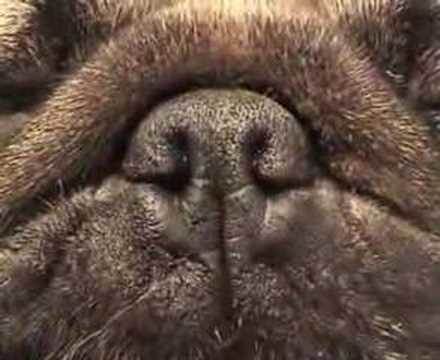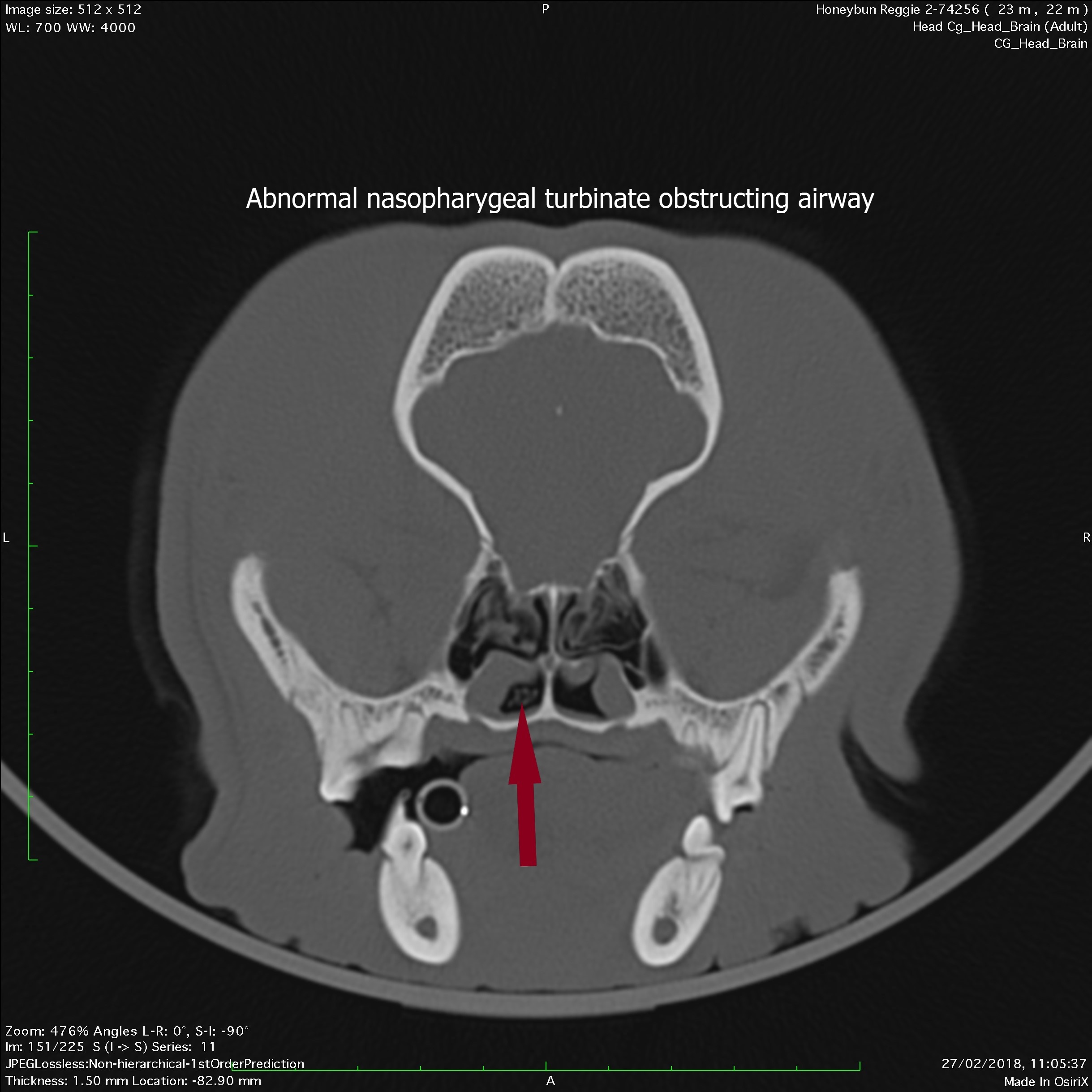The most common indication of surgery of the upper airways is for the treatment of Brachycephalic Obstructive Airway Syndrome (BOAS). In dogs with BOAS, primary upper airway abnormalities such as stenotic nares, an elongated soft palate and abnormal nasopharyngeal turbinates result in obstruction, increased resistance to air flow and negative pressure in the upper airways. The increased inspiratory effort required to overcome this resistance to airflow eventually results in secondary complications including everted laryngeal saccules, laryngeal collapse, heart failure and non-cardiogenic pulmonary oedema.
Please feel free to contact ChesterGates Veterinary Specialists if you require any advice on managing your Brachycephalic Obstruction Airway Syndrome cases.


